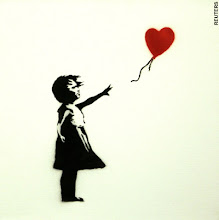Much of today was spent finishing 'The Wind-Up Bird Chronicle' by Haruki Murakami. Like every Murakami book, it has probably crept into my mental Top Ten Books list. Sometimes I worry that one day my whole list will be Murakami. He is widely regarded as one of the world's greatest living authors after all. Luckily his books are also so strange, surreal and unexpected, and so infrequently have a plot that can be explained in less words than the book itself, that within a week I'll have forgotten almost everything about it. Within two weeks I'll be wondering what I ever saw in it in the first place. And so there isn't a single Murakami novel in my actual Top Ten Books list after all.
It's difficult to explain, because Murakami is an author unlike any other I've come across. Admittedly I've read a lot more children's and YA fiction than books aimed at adults, and he's the only Japanese writer I've ever heard of. Perhaps there's loads of other people out there writing in his odd style, and I just havn't read enough books. Still, with Murakami it feels less like you're reading a book, and more like you're feeling around a labyrinth in the dark. I never have any idea what will happen next. I know that can be said about many well-written books, that twists and turns are often exactly what makes a novel so enjoyable, but rarely can you say it and mean it literally. In most books there is a plot that can at least be vaguely set up on the blurb on the cover. Four children and dog discover treasure in a cave. A murdered girl looks down from her heaven and narrates her family's experiences. A family of girls long to find suitable husbands. Not so for Murakami. In Murakami books things just happen, often with seemingly little relevance to the 'main plot', if such thing exists in his book at all.
Take 'The Wind-Up Bird Chronicle'. The blurb tells almost nothing. A man's cat disappears, this unsettles his wife, then his everyday life unravels as a series of strange things happen. An odd summary for a book which is over 600pages long. But to tell anything else really does give the plot away, because there does not appear to be an over-arching plot, at least not until the end, so every little thing that happens is the plot. The 'start' of the mystery at the heart of the story doesn't occur really until 200pages in, so even referring to that would be giving too much away. Characters come and go - soothsayer sisters, elderly generals, evil politicians, complicated teenagers, insightful fashion designers and their mute assistants - and much of the book is made up of their letters and long accounts of their life-stories. At the same time, it doesn't feel like he's writing these things at random, just that the meaning of them is just beyond our grasp.
Somehow this never feels frustrating or overly-intellectual though. Yes, there probably are deeper meanings to these books that I don't understand, but they are so beautiful, detailed and imaginative that it hardly matters. They can be followed because what he says on that very page is so enthralling that you don't necessarily think about what lies in the chapters before and ahead, you just go with his flow. Yes, the sex and violence are explicit, and these aren't novels that I'd recommend to everybody, but he does have a way with words.
One of his books that has been very near the top of the beloved Top Ten ever since I first picked it up is a collection of his short stories - 'Blind Willow, Sleeping Woman'. The random seems less random in short story form, and therefore is less of a distraction. Not only will you remember these 'plots', but they will gently inprint themselves on your mind. Man-eating cats, stone paperweights that move themselves, people who talk to themselves as if reciting poetry - he makes the surreal seem everyday and the everyday surreal. I'd reccommend 'Blind Willow', and his other short story collection 'The Elephant Vanishes', to anyone interested in trying a Murakami book for the first time. If you're wanting to plunge straight into the novels I'd suggest 'Norweigan Wood' (his first novel, which is probably slightly more 'mainstream' than most. He seems to get more surreal with age), or 'Dance, Dance, Dance', which is typical 'strange' Murakami, but is so obviously like that from the outset that it doesn't feel so peculiar.
I hope this didn't put you off. Murakami is a wonderful experience, but a difficult one to explain. I'm yet to meet a person who hasn't declared him to be one of their favourite authors after reading one of his books. He's internationally adored and, as far as I'm concerned, the literary genius of our times.
He also has a stunning website with incredible music.
Tomorrow will be an entirely diferent type of book - I'm hoping to read the whole of Harry Potter 6 in 24 hours. I was planning to see the film first, but then I cahnged my mind . . . and I'm meant to be seeing the film on Thursday. Oh well.
SHORE LINE - new print release!
9 years ago

No comments:
Post a Comment